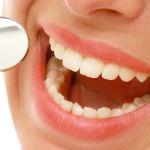Best Dental Care Practices for Seniors with Diabetes
As someone who’s passionate about maintaining good oral health, I know that proper dental care becomes even more crucial as we age. For seniors, this need is especially critical when managing chronic conditions like diabetes. Diabetes can significantly impact oral health, making seniors more vulnerable to gum disease, tooth loss, and other dental issues. Understanding the connection between diabetes and oral health, and adopting the right dental care practices, can make all the difference. In this article, I’ll walk you through the best dental care practices for seniors with diabetes, so you can take control of your health and maintain a healthy smile for years to come.
1. The Importance of Regular Dental Checkups
First and foremost, regular dental checkups are essential for seniors with diabetes. Diabetes affects blood sugar levels, which in turn can increase the risk of gum disease and other oral infections. As such, it’s important to visit your dentist at least twice a year for thorough cleanings and checkups. During these visits, your dentist can detect early signs of oral health problems like gum disease or cavities, both of which are common among seniors with diabetes.
For seniors with diabetes, it's especially important for the dentist to understand your medical history. Sharing your diabetes management plan with your dental care provider allows them to tailor their treatments and preventive care to your unique needs. If you haven’t visited a dentist recently, consider scheduling an appointment soon to establish a proactive approach to your oral health.
2. Brushing and Flossing Techniques
Good daily oral hygiene is essential for everyone, but it’s particularly important for seniors with diabetes. Plaque buildup can lead to gum disease, which can be exacerbated by diabetes. To avoid this, brushing your teeth at least twice a day with fluoride toothpaste is essential. Be sure to use a soft-bristled toothbrush to prevent damage to your gums.
Flossing is equally important. Plaque tends to accumulate between teeth where your toothbrush might not reach. Seniors with diabetes should floss at least once a day to prevent gum disease. If traditional flossing is difficult, try using floss picks or water flossers. These tools can help maintain a clean mouth while being easier to handle than traditional dental floss.
3. Managing Dry Mouth and Its Impact
Dry mouth is a common issue for seniors with diabetes, and it can increase the risk of cavities and gum disease. This condition occurs when your body doesn’t produce enough saliva, which helps protect your mouth from bacteria and neutralizes acids. Some diabetes medications can also contribute to dry mouth, making it even more important to find ways to manage it.
To combat dry mouth, seniors should drink plenty of water throughout the day, use saliva substitutes, and consider sugar-free lozenges or gum. Additionally, you can use a humidifier at night to keep your mouth moist while you sleep. If dry mouth persists, consult your dentist or doctor for further recommendations.
4. Eating a Healthy Diet for Oral Health
Eating a balanced diet is vital for maintaining good oral health, especially when managing diabetes. A healthy diet can help control blood sugar levels and promote better gum health. Seniors with diabetes should focus on foods rich in calcium, vitamin C, and other essential nutrients that support bone and gum health.
It's also important to limit sugary foods and drinks, as these can contribute to cavities and worsen blood sugar control. Instead, opt for healthy snacks like vegetables, fruits (in moderation), and whole grains. Drinking water throughout the day also helps rinse food particles and prevent plaque buildup.
5. Understanding the Link Between Diabetes and Gum Disease
Gum disease, or periodontal disease, is a serious concern for seniors with diabetes. High blood sugar levels can impair the body's ability to fight infection, making it more difficult to manage gum disease. Additionally, gum disease can make it harder for diabetics to control blood sugar levels, creating a vicious cycle.
Seniors with diabetes should be especially vigilant in monitoring for signs of gum disease, such as bleeding gums, swollen gums, bad breath, or gum recession. If any of these symptoms appear, it’s important to seek treatment from your dentist promptly. Treating gum disease early can help prevent further complications and preserve oral health.
6. The Role of Medications in Dental Health
Many seniors with diabetes are prescribed medications to manage their condition. However, some of these medications can have side effects that impact oral health. For example, certain medications may cause dry mouth, which can lead to an increased risk of cavities and gum disease.
It’s important to have an open conversation with your healthcare provider about any medications you're taking and how they might affect your oral health. Your dentist can help mitigate the impact of medications on your mouth by recommending products to address dry mouth or other oral health issues. In some cases, your doctor may also adjust your medications to help minimize side effects.
7. Tips for Seniors on Preventing Tooth Loss
Tooth loss is a major concern for seniors, especially those with diabetes. To prevent tooth loss, it’s essential to practice good oral hygiene, visit the dentist regularly, and manage your blood sugar levels. By staying on top of your oral health, you can significantly reduce your risk of losing teeth due to gum disease or other oral health issues.
Additionally, seniors should consider wearing dentures or partial dentures if necessary. Modern dentures are more comfortable and natural-looking than ever before, allowing seniors to maintain a full, healthy smile. Your dentist can help guide you in choosing the right solution for your needs.
Conclusion
Maintaining good dental care practices is essential for seniors with diabetes, as it can help prevent a variety of oral health issues, including gum disease and tooth loss. By following the best dental care practices outlined in this article, you can ensure that your mouth stays healthy and your smile stays bright for years to come. Remember to schedule regular dental checkups, maintain good oral hygiene, manage dry mouth, and eat a healthy diet to support your overall oral health.
If you’re a senior with diabetes, it’s never too late to start focusing on your oral health. A proactive approach will help you maintain a healthy mouth and a confident smile. For more tips or to schedule a dental checkup, visit Dentistry Toothtruth for expert care and advice!







 Family Holland Dental4.0 (236 review)
Family Holland Dental4.0 (236 review) Round Lake Dental4.0 (115 review)
Round Lake Dental4.0 (115 review) Eastern Dental3.0 (336 review)
Eastern Dental3.0 (336 review) Millennium Dental Arts5.0 (235 review)
Millennium Dental Arts5.0 (235 review) A-Z Dental Art Studio4.0 (50 review)
A-Z Dental Art Studio4.0 (50 review) Bespoke Dental Co.4.0 (32 review)
Bespoke Dental Co.4.0 (32 review) The Importance of Oral Health Education During Pregnancy for a Healthy Pregnancy
The Importance of Oral Health Education During Pregnancy for a Healthy Pregnancy Best Tips for Brushing Your Teeth Properly for Healthy Gums: Essential Techniques for Oral Health
Best Tips for Brushing Your Teeth Properly for Healthy Gums: Essential Techniques for Oral Health Why Skipping Dental Checkups Can Lead to Bigger Oral Health Problems
Why Skipping Dental Checkups Can Lead to Bigger Oral Health Problems Advantages of Porcelain Dental Restorations
Advantages of Porcelain Dental Restorations How Can Diabetes Cause Tooth and Gum Problems? Preventing and Managing Oral Health Issues
How Can Diabetes Cause Tooth and Gum Problems? Preventing and Managing Oral Health Issues Healthy Habits for Promoting Good Oral Health and Hygiene: Tips for a Healthy Smile
Healthy Habits for Promoting Good Oral Health and Hygiene: Tips for a Healthy Smile